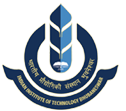- Home
- The Institute
- People
- Schools
- Academics
- Students
- Quick Links
- Admin Notifications related to COVID-19
- International Collaborations
- Link to Other IITs
- Download Forms(Establishment)
- Guest House
- Institute Seminar Series
- Institute Celebrations
- Rajbhasha Ekak
- Transportation Service
- Startup Centre
- Hostel Payment portal
- Sanjeevan Health Centre
- Endowments
- Awards
- ERP
- ERP(New)
- Current Time Table
- Central Library
- Vigilance Complaint Portal
- Cyber Security Best Practices
- Kendra Vidyalaya IIT Bbs Campus
- Campus Weather
- Admissions
- Media
Institute Seminar Talk by Prof. Zellman Warhaft, Professor, Cornell University, Ithaca, NY, USA on 18th March 2016.
Topic: Mixing and Transport in Nature and Engineering Systems: Implications for Global Warming
Speaker: Prof. Zellman Warhaft, Professor, Cornell University, Ithaca, NY, USA
Venue: Institute Auditorium Date: 18th March 2016 Time: 4:30pm – 5:30pm
 Abstract: Heat, moisture, dust and raindrops are generally rapidly mixed by the fluid fluctuations in the atmosphere, as are reactants in chemical reactors and combustors. Knowledge of the details of heat and moisture transport in the atmospheric boundary layer, and of cloud droplet dynamics, is essential to understanding global warming. But they are still poorly understood and this hinders our progress in bridging the gap between fundamental physics and numerical simulations and predictions. Here I give an overview of mixing processes, and relate these to the larger problems of understanding and addressing global climate change.
Abstract: Heat, moisture, dust and raindrops are generally rapidly mixed by the fluid fluctuations in the atmosphere, as are reactants in chemical reactors and combustors. Knowledge of the details of heat and moisture transport in the atmospheric boundary layer, and of cloud droplet dynamics, is essential to understanding global warming. But they are still poorly understood and this hinders our progress in bridging the gap between fundamental physics and numerical simulations and predictions. Here I give an overview of mixing processes, and relate these to the larger problems of understanding and addressing global climate change.
Biography of the Speaker: After completing his undergraduate education (Melbourne University, 1967), Prof. Warhaft was an engineer at the Radio Propagation Research Division, Australian Post Office Research Laboratories, in Melbourne, where he conducted experiments on the effect of the weather on microwave radio propagation. Then, for six years through 1975, he was a research scientist at The Radio and Space Research Station, Science Research Council, Ditton Park, United Kingdom (now The Appleton-Rutherford Laboratory). After earning his doctorate (University College, London, 1975), he became a senior project associate for the Department of Aerospace Engineering at The Pennsylvania State University, where he also worked with the Meteorology Department. Since 1977 he has been at Cornell University.
Zellman Warhaft conducts basic wind tunnel experiments on particles in turbulence in order to understand the dynamics of raindrops in clouds. His present interests are in the fundamentals of the small-scale structure of the scalar and velocity fields in high Reynolds number turbulent flows and the effects of turbulence on the formation of raindrops in clouds. Prof. Warhaft numerous collaborative research programs worldwide.
He is actively involved with diversity issues across the university: He was Provost Fellow addressing faculty diversity (2010-2011) and Associate Dean for Diversity in the Engineering College (2003-2007). He is also engaged in the environmental matters: he was Chair of the Faculty Advisory Board for the Atkinson Center for a Sustainable Future (ACSF), 2010-2011. He also teaches courses on sustainable energy. He is also concerned with the social aspects of engineering and (apart from his more formal teaching obligations) taught for many years a course on this topic called "Components and Systems: Engineering in a Social Context". Through case studies, he illustrated that engineering is very much a social activity and that the modern engineer must be more involved with the social and environmental implications of his or her work. He has written a book for freshmen that addresses these ideas. He is affiliated with the Science and Technology Studies Department, with the Peace Studies Program and with the Atkinson Center for a Sustainable Future at Cornell.



